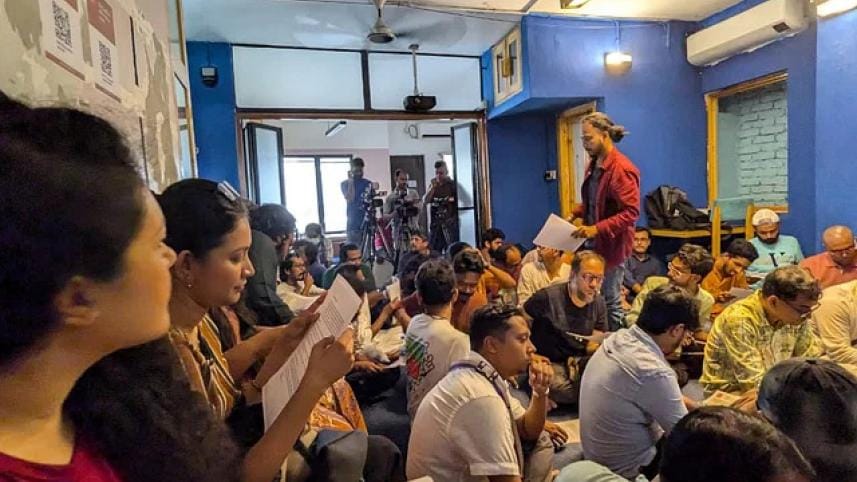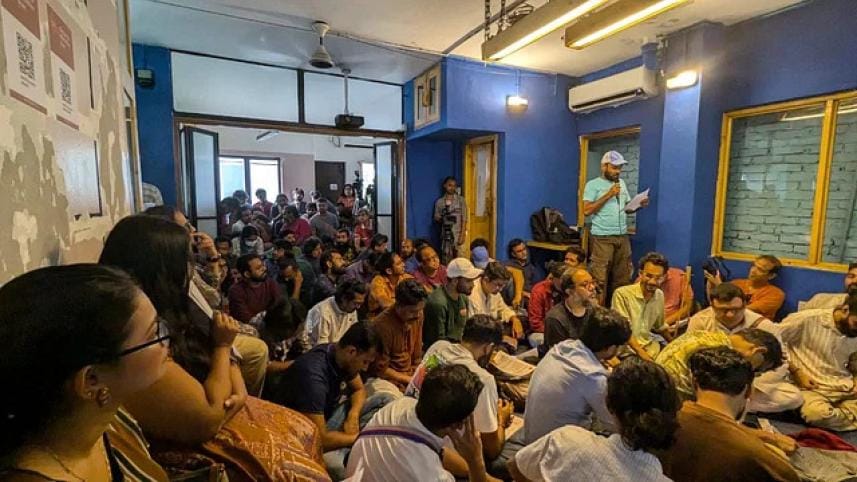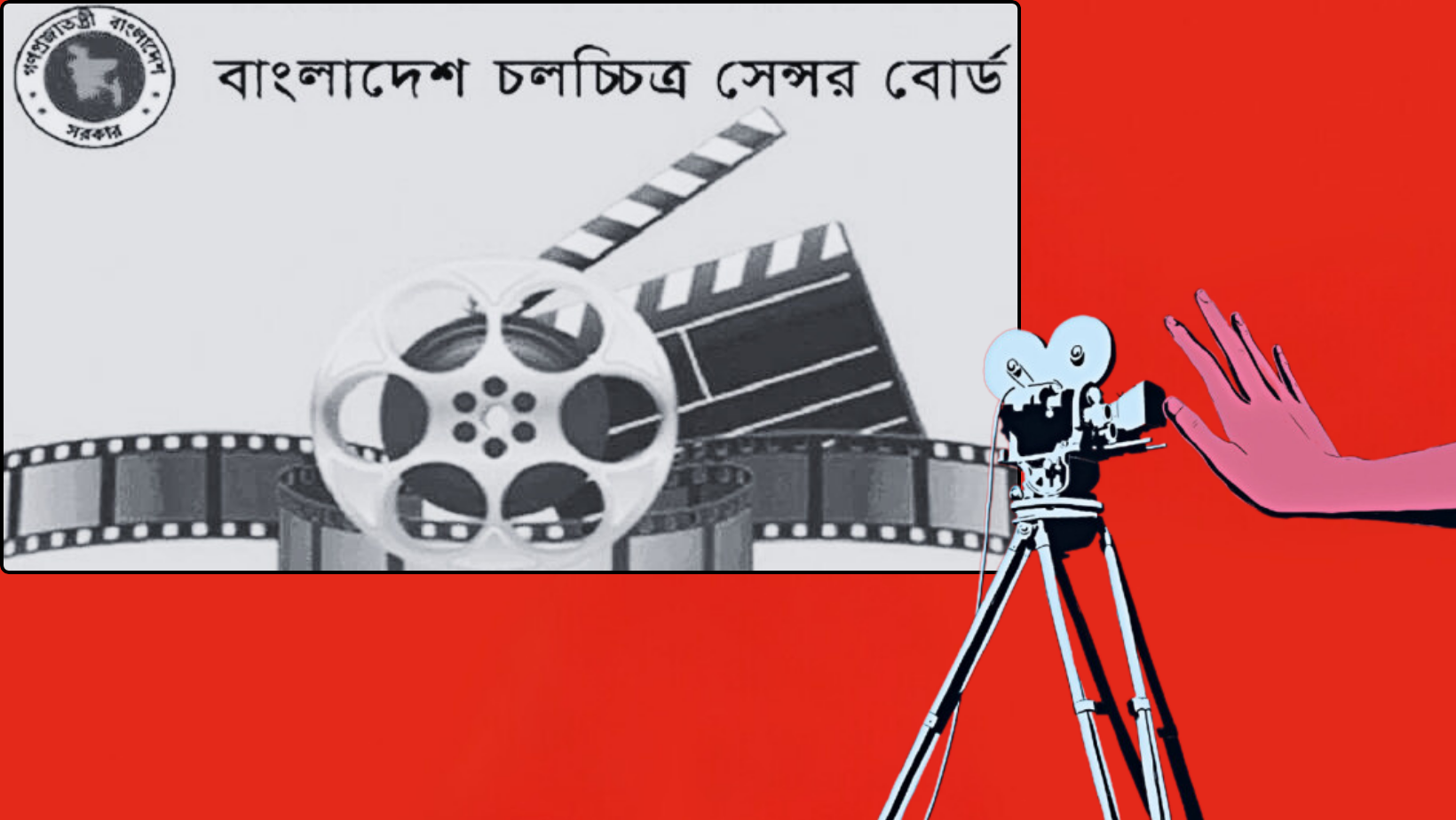Bangladeshi filmmakers demand reform in 24-point agenda

In a bold push for industry-wide reform, Bangladeshi filmmakers are demanding sweeping changes, including the dissolution of restrictive laws and the establishment of an autonomous film commission. The call comes from a coalition of film professionals, spearheaded by a new generation of artistes who have outlined a comprehensive 24-point agenda for change.
Nearly 100 filmmakers and representatives of film-related institutions gathered at Dhaka's Ground Zero to deliberate on the "Cholochitro Shongskar Roadmap '24" (Film Reform Roadmap 2024) on Friday evening.
Virtual participants from outside Dhaka also joined the discussion, reflecting the broad-based support for the initiative. Their mission, as articulated in a post-meeting statement, is clear: "Rising above individual interests for the sake of collective well-being will be our priority."
This demand for reform signals a defining moment for the Bangladeshi film industry, which has long grappled with outdated bureaucratic structures and restrictions on artistic freedom. At the heart of the agenda is the call for an independent, self-governing film commission, a move that would decentralise control and empower filmmakers with greater autonomy.

Key demands for reform
The most prominent demand is the repeal of all repressive laws that curtail freedom of speech—a step filmmakers argue is crucial for fostering creativity and expression. The creation of a film council, responsible for the oversight of industry regulations and governance, also stands as a key proposal.
Other demands address the practical and infrastructural issues stifling the industry's growth. These include the establishment of a Film Finance Corporation to provide funding, the modernisation of the Film Development Corporation (FDC), and the completion of the long-delayed Kabirpur Film City project. Proponents believe these developments will help bring Bangladesh's film industry in line with global standards.
Further calls for reform touch on film education, urging world-class film curricula in institutions like the Bangladesh Cinema and Television Institute (BCTI). By ensuring top-tier education for upcoming filmmakers, the industry can create a talent pool capable of competing internationally.
Expanding opportunities for filmmakers and audiences
The filmmakers' agenda also emphasises the need to broaden participation in the film industry. One proposal calls for developing guidelines for digital film distribution and exhibition, ensuring that films reach wider audiences. This also includes promoting inclusive opportunities for underrepresented groups to participate in film production and exhibition.
Sustainability and environmental consciousness are woven into the plan as well, with calls for eco-friendly policies in film production and development. This reflects a growing awareness of the environmental impact of filmmaking, a concern that mirrors broader global trends in the entertainment industry.
Another key aspect of the roadmap is to foster international collaboration. The agenda proposes signing bilateral agreements with various countries to promote cultural exchange through film festivals and education initiatives. This would not only enhance Bangladesh's global footprint but also create new opportunities for co-productions and cross-border projects.
Navigating the complexities of censorship and regulation
Navigating the intersection of film, freedom of expression, and social responsibility is a delicate balance. One of the most contentious proposals is the formation of a monitoring cell composed of religious scholars, legal experts, and intellectuals to oversee films that touch on sensitive issues like religion and national security. This body would be tasked with defining clear guidelines to safeguard religious sentiments while ensuring that artistic expression remains protected.
Filmmakers also seek revisions to the Bangladesh Film Certification Act 2023, advocating for a new grading system that would more fairly regulate content without stifling creativity.
Protection for filmmakers under threat
In a country where societal backlash against controversial films is not uncommon, ensuring the safety of filmmakers has become a pressing issue. The agenda calls for security measures to be put in place for artistes whose work sparks public outrage or poses potential security risks. The recent rise in politically and socially charged films has heightened the urgency for such protective measures.
A pivotal moment for the industry
The filmmakers' collective is aware that this is only the beginning of a long journey. While the 24 points have been laid out, participants acknowledged that revisions and refinements will be necessary as discussions continue. However, the unity shown by Bangladesh's filmmaking community underscores the importance of this moment.
This 24-point agenda has the potential to reshape the Bangladeshi film industry, offering filmmakers greater autonomy, resources, and protections while fostering a more inclusive and innovative cinematic landscape.
As they await further deliberation and potential government response, it is clear that these filmmakers are not just asking for change—they are demanding it.



 For all latest news, follow The Daily Star's Google News channel.
For all latest news, follow The Daily Star's Google News channel. 




Comments